INTERVIEWED BY AMANITA SEN
“The Gita, and the Bible has had always had its
ratiocination in my life with the profundity of its thoughts. The gradation of life is our own,
and we aren’t asleep at the wheel. The ethical equilibrium holds our thoughts.”
_Navamalati
Amanita: You grew up in the beautiful state of Assam, India. How do you think the state has influenced your original writings?
Navamalati: Assam, the quaint, cosy state in the north-east of India is famed for its lush greenery, its fertility, the mighty Brahmaputra, the oil-refinery, the tea gardens, and its vibrant echoing hills that catch the early morning sunrise. Living amidst such glory the Assamese have not known what struggle means. Sankaradeva, the great Vaishnava saint and integrator who lived in the 15th -16th centuries, brought in the ideals of good life conceived on the background of a faith resting on a single deity…the eka-saraniya dharma. He gave us the borgeets, together with the namghar for the people to gather together and sing from the pages of the Kirtan ghoxa. Later the Xatras came up and the rest is our history.
This is all about Assam. The maths that complements my existence beyond that is the multiplication of a great quiet and peaceful existence in Guwahati since my childhood days. There was always an earnest looking forward within the precincts of ‘Vaijayanti’, the haven that is our home. My father, Maheswar Neog, a name synonymous with scholarship had devoted his life to the advancement of Assam’s literary and cultural heritage ever since I can remember. Hence, throwing tantrums or being noisy, as children generally are, was an alien thing for me and my siblings. My mother who was a writer and a home-maker kept up two gardens…for flowers and vegetables, and maintained a large pukhuri, a pond (very common in Assam) for fishes.
Together with scholars and visitors and bhakots, the devotees from the Xatras, my father carried on with his work within the ambience of a peaceful homestead. Assam was his life-breath! My mother saw to… everything regarding the home and the children. We saw her helping our father out with deciphering the xasi-puthi…the ancient manuscripts on bark-leaf. All was Assam for me! She read to us in the evenings after we had sung the nam-ghoxa with her.
That was the entirety of the influence I had during my growing years. I had by then, picked up writing in my diary.
Amanita: How has your family contributed to your writing career?
Navamalati: Books for me were boon companions, beginning with fairy tales and folk tales. I just read on. Our home carried the breath of books. I loved the composition class in school and although I went to an English medium school, I won my first award in Class VII on an All-Assam Level for a short story written in Assamese. My mother had taught me to read and write in Assamese, as our school began that only from the sixth standard. Poems were my leaning. During my college days and in the university, my creative impulse got the better of me and I began writing essays and short stories. While I was in St Mary’s Convent, I was more drawn by the church interior…the wan face of Jesus, the words of the Bible and feeling the rosary! College and University brought in a more democratic sphere. I mixed with students from different folds. I was conversant in Assamese, Bengali, English and in Hindi too (as a second language). My father’s closeness to Santiniketan brought scholar guests to our home very frequently. I listened intently to their conversation. Some of it I understood, others I didn’t, but I was star-struck as father tagged me along to meetings and dance recitals. Our mother was always our go-to person. She sang Rabindra sangeets and borgeets and home was filled with warmth. The lilt in my life had all these influences but mostly that of my mother as she wrote for magazines and gave talks in the All India Radio, on social issues.
I wrote my first book at age 21, after my marriage when I was in Kohima… Nagaland: The Land and the People. It was the first book published in Nagamese in the Roman script, by Assam Sahitya Sabha. Nagamese is a pidgin used by the people who live in Nagaland, the Nagas as well as the outsiders. My father encouraged me to go ahead. After that there was no looking back.
Amanita: Do you think that it is important to be mindful of morality as a creator of art?
Navamalati: Most certainly, if there is no morality or ethical grandeur of thoughts, what is art for! I am an artist and had passionately painted the Pieta. That look on Mother Mary’s face held a mother’s angst, deep and profound. The Gita, and the Bible has had always had its ratiocination in my life with the profundity of its thoughts. The gradation of life is our own, and we aren’t asleep at the wheel. The ethical equilibrium holds our thoughts. A writer has a huge role to play to keep society healthy.
Amanita: How do you think the academic system has changed over the years? How does it view or nurture creativity in the students?
Navamalati: The academic system has taken a giant leap. The students too are a whole lot more sincere, ambitious and dedicated. But the shocking number of growing suicides frighten me. Our times were much more relaxed. Now expectations are peaking. We hungered to read books beyond our syllabus. Now students can hardly afford the time. They neither have the time to enjoy a pleasant sunrise, note the colour of the sky at sundown. Book lovers are few.
Change is however the essence of life.
Amanita: You have a noteworthy body of translated works to your credit. Could you tell us about the challenges you have faced while translating from Assamese to English?
Navamalati: Translation has been for me since 2016 a very passionate journey. I have picked up the works of Assamese stalwarts, dating back from the early 19th century to present times. I have translated some 12 Assamese works and 3 Bengali novels. I love translating both prose and verse, as I can lose myself in the world of those reputed writers of yesteryears. Each of them has their own signature style. They leave such a lot of their persona in their writings.
They had no urgency to break through a glass ceiling and yet the profundity of their focus holds me spellbound. They use the same language and yet they have their own narrative style. During the initial week after I begin my work, I keep my cool and try to absorb that special magic of words which they hold. Coming to the style of the language writer’s use, I found in Lakshminath Bezbarua and in my father’s Dr Maheswar Neog’s writings, a tough challenge. Often, I am caught with a certain dated expression, an adage, or the use of a word that has lost its usage. On such occasions, I need to pause, breathe hard, and think over the relevant narrative. And then it dawns on me as a revelation. Translation is a serious affair and requires great concentration.
Dr Jharna Sanyal calls me an “ace translator” while Dr Sanjukta Dasgupta says that my translation is sensitive and perceptive. After I had translated my father’s memoir Reminiscence: The Warp and the Woof of Life, Dr Nagen Saikia, a luminary in the world of letters went through it, he called me over the phone from Dibrugarh and spoke breathlessly. I knew he would have hugged me with fervour, if I would have had been anywhere near him. “You have translated Sir’s memoir, and you did it! You did it so very well! Extremely well. I am elated, very pleased. This is a significant work.” He is that person whose every word matters.
The next person whose words I cherish is Dr Ramkumar Mukhopadhyay. I have translated two of his works. Dukhe Keora and Kothar Kotha. He said, “You are a living link between Assamese and Bengali.” The fact that Subrata Mukhopadhyay’s novel Birasan which I have translated, and has been published by Sahitya Akademi, is for me a great reason to cheer.
Challenges were there, but they weren’t daunting. I have noted them down.
Amanita: What books are there on your bedside table? What are you enjoying reading the most now?
Navamalati: By my bedside table I now have Richard Bach’s Jonathan Livingston Seagull: A Story, John Steinbeck’s Of Mice and Men, and Palgrave’s Golden Treasury. Before sleep sits heavy on my eyelids, I enjoy reading some verses by Tennyson or Browning. They are my favourite poets.
End notes:
Borgeet: lyrics written initially by Srimanta Sankaradeva to be sung in a namghar.
Namghar: a place in each locality where the Vaishnavite devotees together with the congregation sing from the kirtan.
Ghoxa: passages from the kirtan.
Xatra: a place where the devotees or Vaishnavite priests live and where they spend their lives in a manner that follows a regulatory system.
Nam-ghoxa: the word of the lord.
Also, read “The World’s Beautiful Because of Tears” by Dr Maheswar Neog and Translated from The Assamese by Navamalati Neog Chakravorty and published in The Antonym:
Follow The Antonym’s Facebook page and Instagram account for more content and exciting updates.

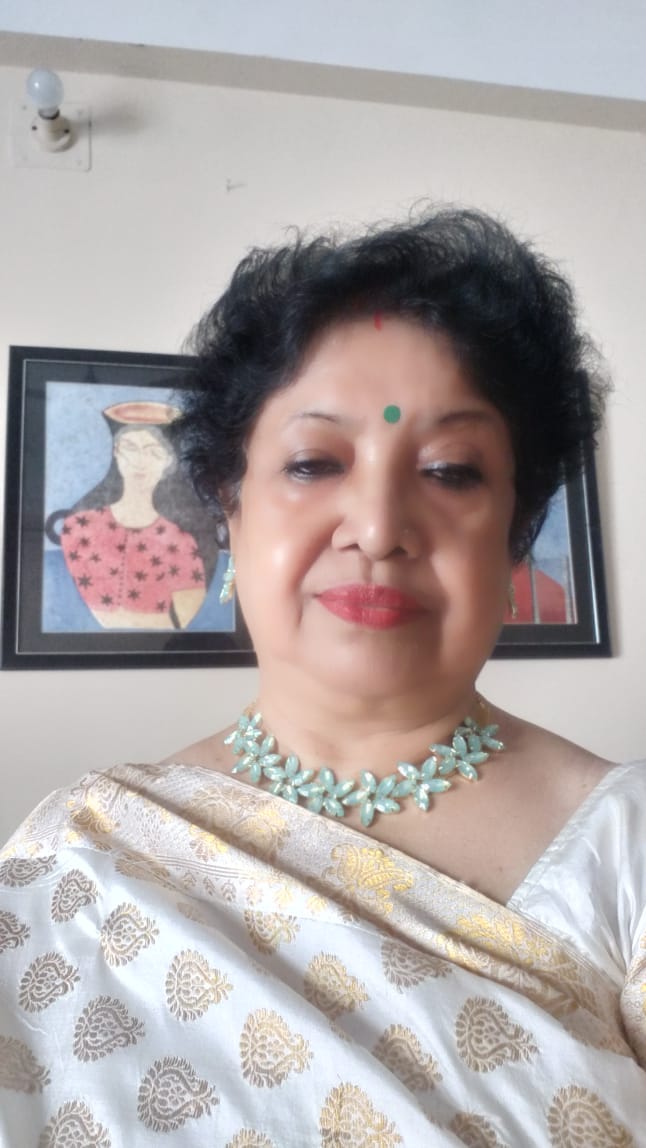
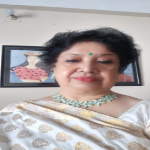
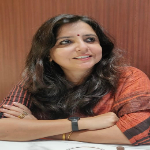
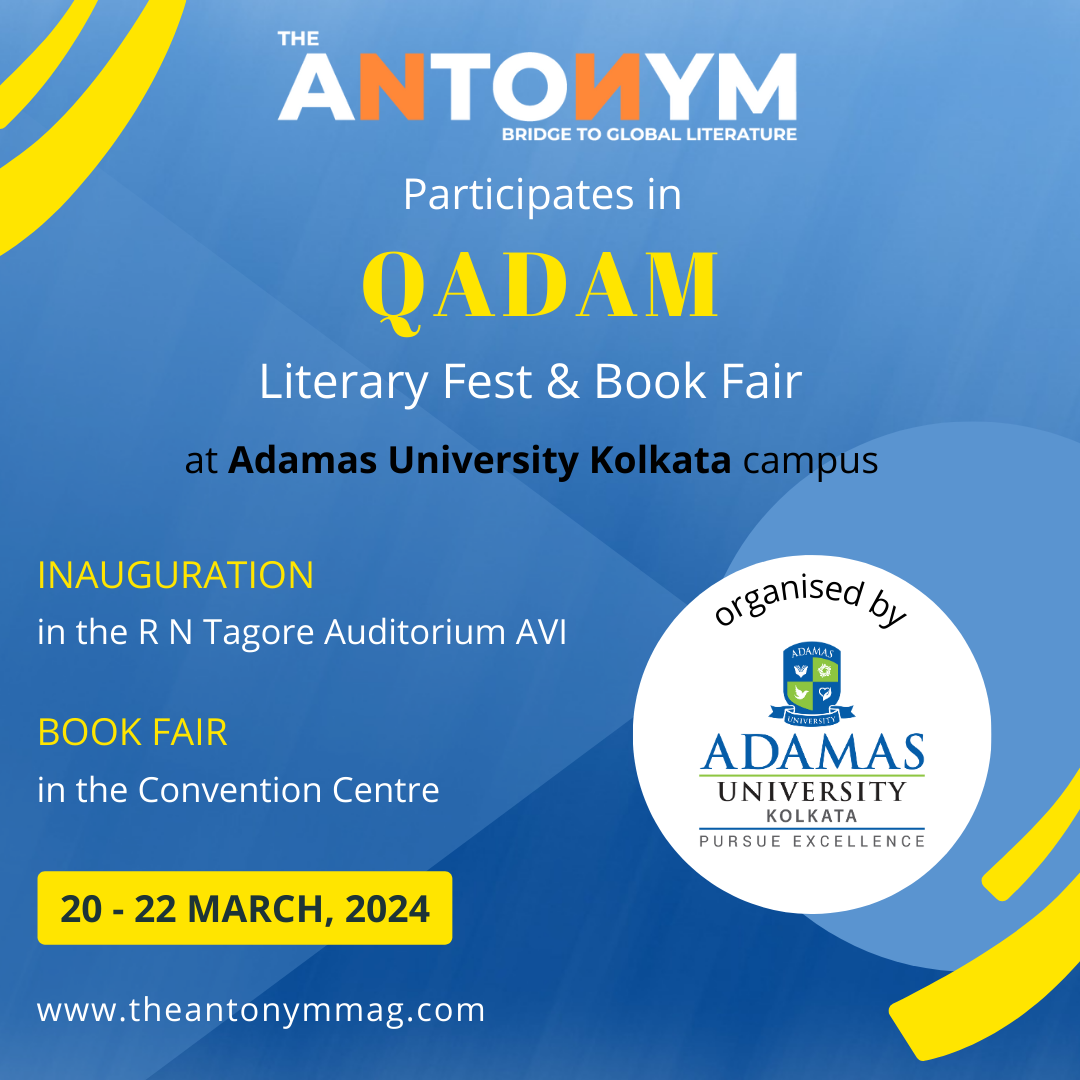
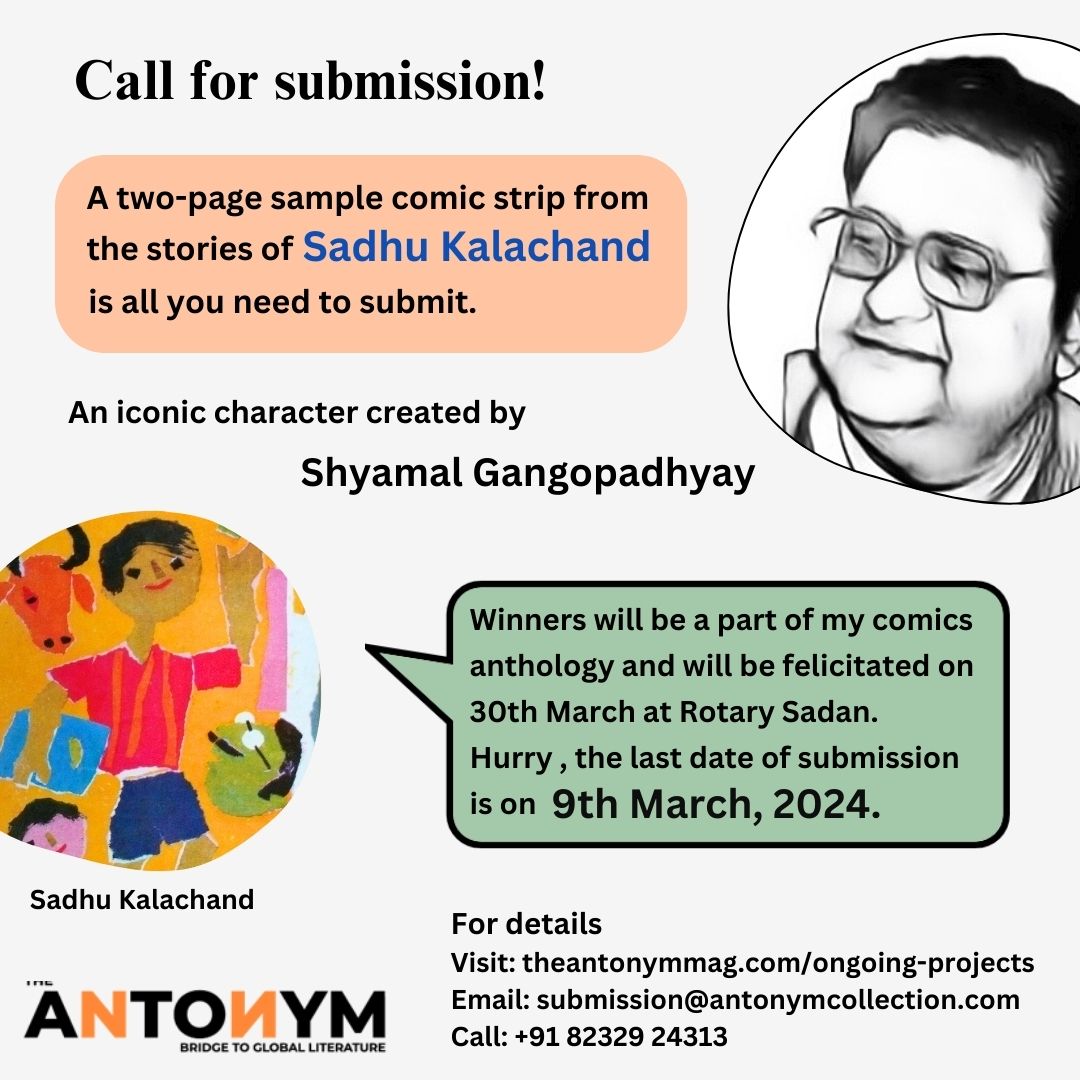
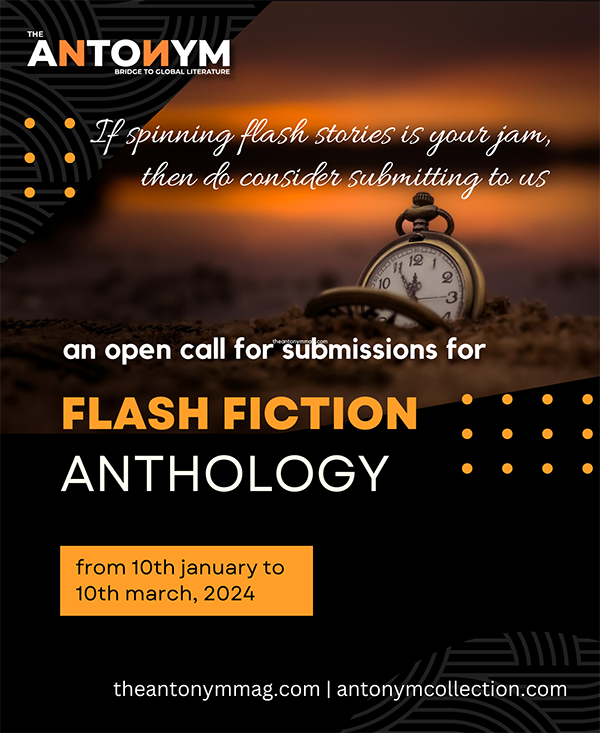








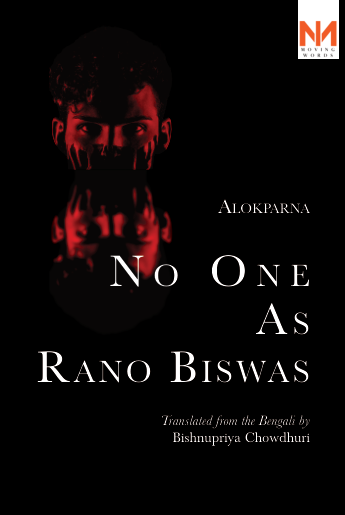
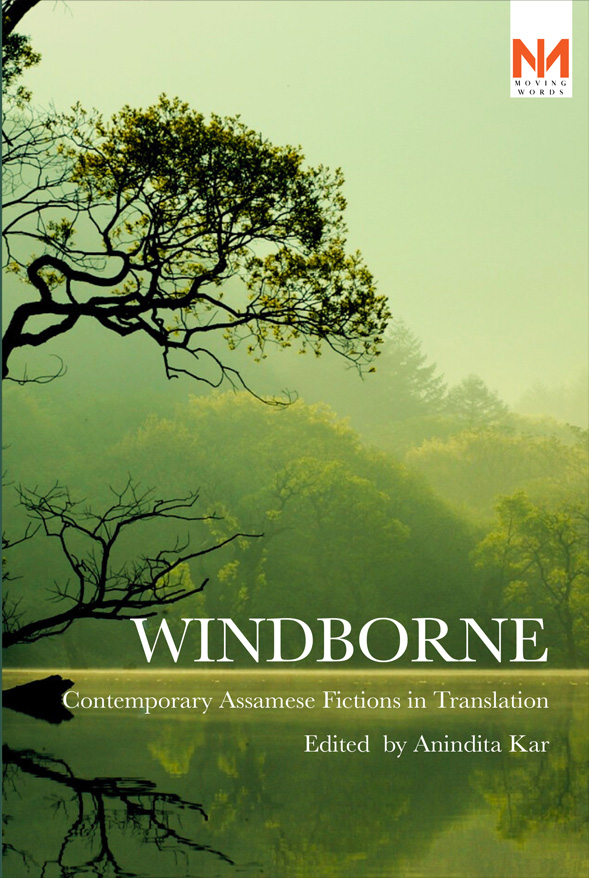
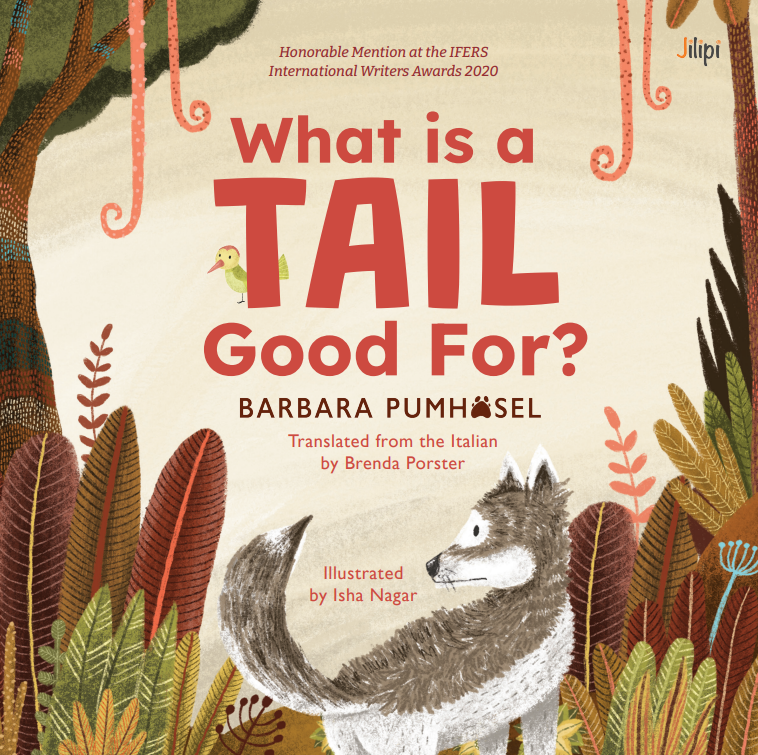















0 Comments